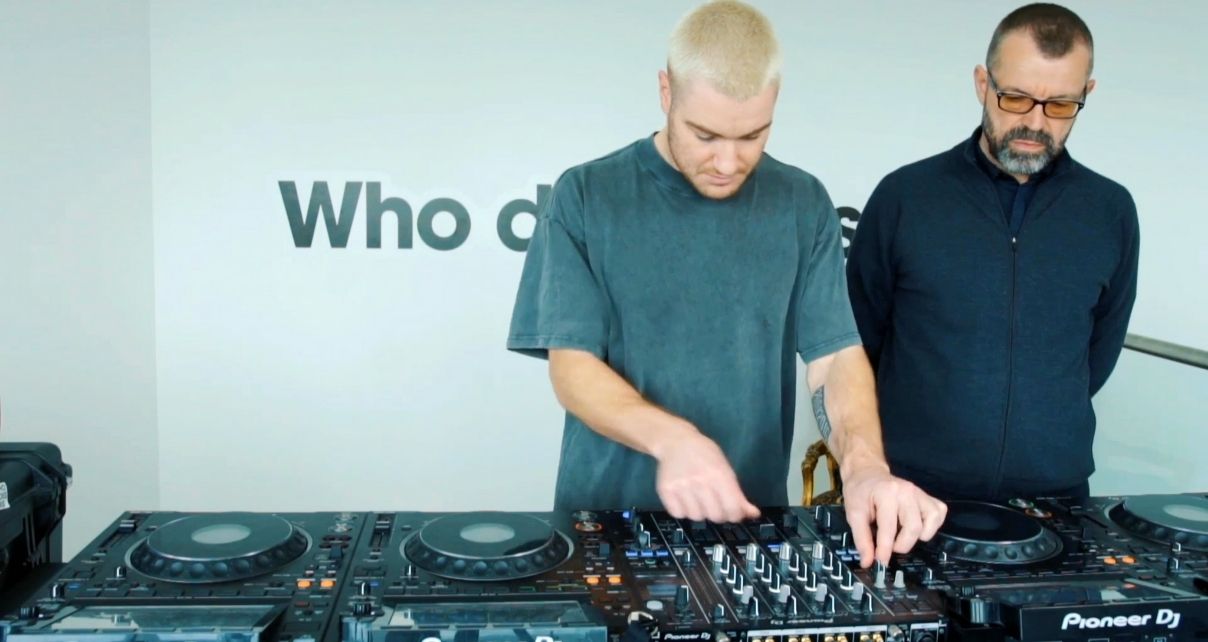So you want to make music, just like the tracks you hear DJs like our very own tutor James Hype drop in their sets. We’re talking huge club bangers, with massive drops, dramatic build ups, amazing basslines, dirty noises… music for raving to, basically.
The thing is, making this kind of track is very different to making pop music, or any other kind of music come to that. And “standard” production techniques and skills either won’t work or aren’t necessary. At the same time, you may find you need new skills that maybe more “traditional” producers don’t know about or need.
Good news for DJs…
The good news is that if you’re a DJ, and a lover of dance music, you’re already halfway there. You know what works. You know the kind of tracks you want to make. You have lots of examples of them in your music collection. These things are a huge advantage.
Another piece of good news is that to make this kind of music, you don’t need lots of musical training (you certainly don’t need to be able to play any instruments).
Read this next: Easy Guide To Music Theory For DJs

A further piece of good news is that you don’t need lots of equipment. A typical studio may have soundproofing, audio treatment, microphones, a vocal booth, and all kinds of other gear… yet to make “club bangers”, you need… a laptop and a pair of headphones. The rest is optional.
So now we’ve talked about some basics, what are the secrets? Let’s look at them one by one…
5 Secrets To Producing Club Bangers
- Use samples – Probably THE dirty secret of all top dance music producers is that they use samples in their music for all kinds of things – synth riffs, sounds, vocals, kick drums, percussion loops… The trick is in how you use them, because if you know how to make them “your own”, there’s nothing wrong with doing this, and it saves TONS of time
- Test EARLY – Our tutor James Hype (the man behind our James Hype’s Club Bangers music production course) always outputs a WAV of each track he’s working on pretty early – as soon as he’s built the build and drop and a basic structure. He then plays the track on a DJ set-up, at home or in his real sets. What he learns from this makes finishing the track MUCH easier, because he quickly discovers what the track really needs to improve
- Compare your track to tracks you love – You can load a track whose sound and feel you’re aiming at into your DAW and match it up with the track you’re working on, like lining up two tracks in a DJ set. Then you can switch from A to B, listening to see where your track falls short sonically, helping you to understand what you need to do to improve
- Don’t try to be Beethoven – These are club tracks! So you can afford to be less concerned about key, chords, and all that. Pick a huge bass note, and build the track around that. If new elements sound good from there, include them. Trust your ears and don’t worry if what you’re doing follows any musical rules. Some HUGE club tracks are so atonal that they don’t really have a key, and that’s fine
- Maintain momentum – This isn’t a rock band writing their “difficult second album”. It’s not tortured artist stuff. You’re effectively making club music that sounds like everyone else’s, only a bit different. So once you get started, make progress. Don’t agonise over ANYTHING. If you’re really stuck, leave it till tomorrow and come back to it. Always move forward, because momentum gets things finished

Yes, you have got time!
About that last point, momentum. One of the biggest things producers grapple with is not actually finishing anything. We look for big chunks of time where we can lock a door, and produce without the distractions of day to day life.
And those chunks of time never come.
The beauty about producing club bangers is that they needn’t take a lot of time to do.
As an example, our tutor James Hype, in our course James Hype’s Club Bangers, makes a club track as we film him and ask questions. The track ends up getting signed by Oliver Heldens and getting played all over Miami Music week – it’s a bona fide hit! Yet that track took him just 20 hours, including the teaching/filming time. We started at midday on Monday, and by Mid-afternoon on Wednesday, it was finished.
You can find the time.
Finally…
So if all of this sounds like you – if you are stuck, you think you’re too busy, you worry that you don’t have the musical knowledge to make music, you don’t know how to fix your tunes not sounding as good as anyone else’s, and you wonder why top producers always seem to find great sounds for their tunes – now you’ve got some of the answers.
Read this next: 7 Things To Consider When Setting Up A First Home Music Studio
We hope these tips help you to get re-inspired, and if you’re interested in having one of the hottest house producers in the world teach you from start to finish how this is done, do check out the course:
Click here to learn more about James Hype’s Club Bangers
Happy producing!



